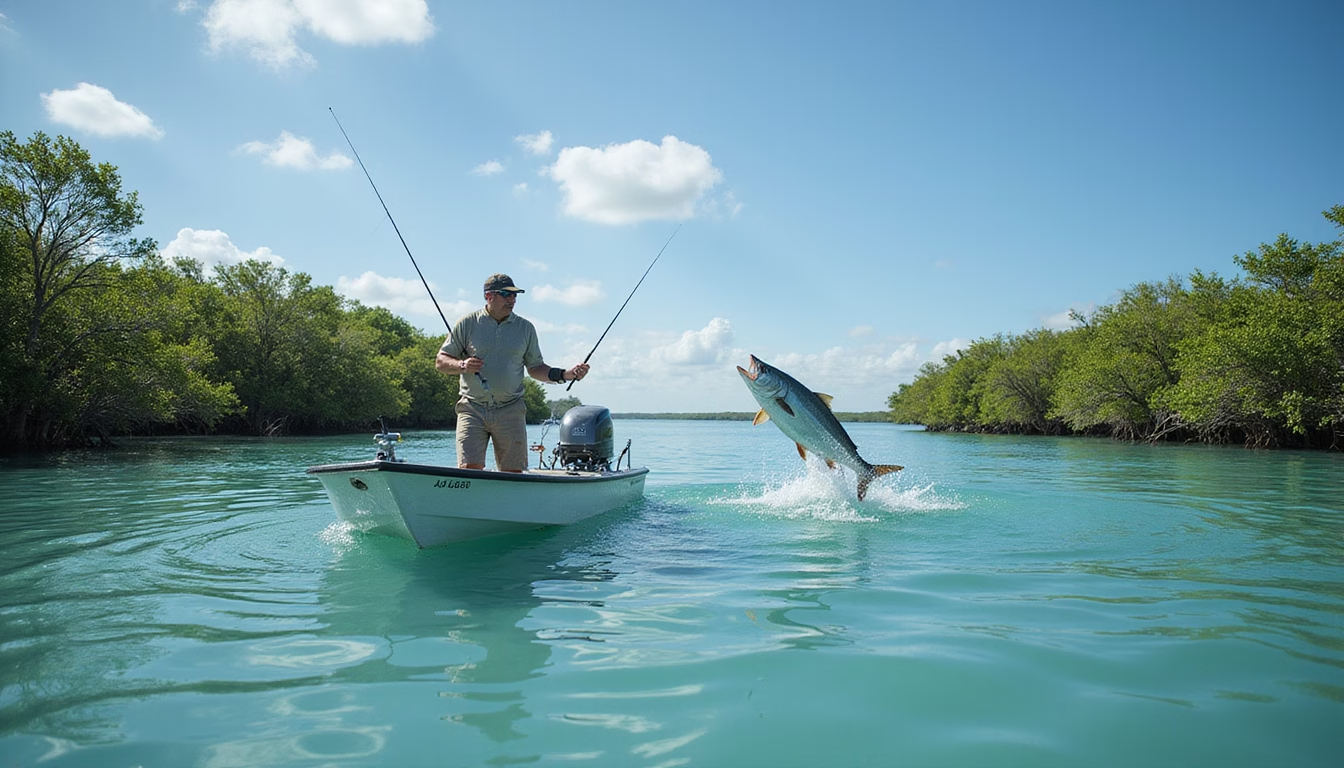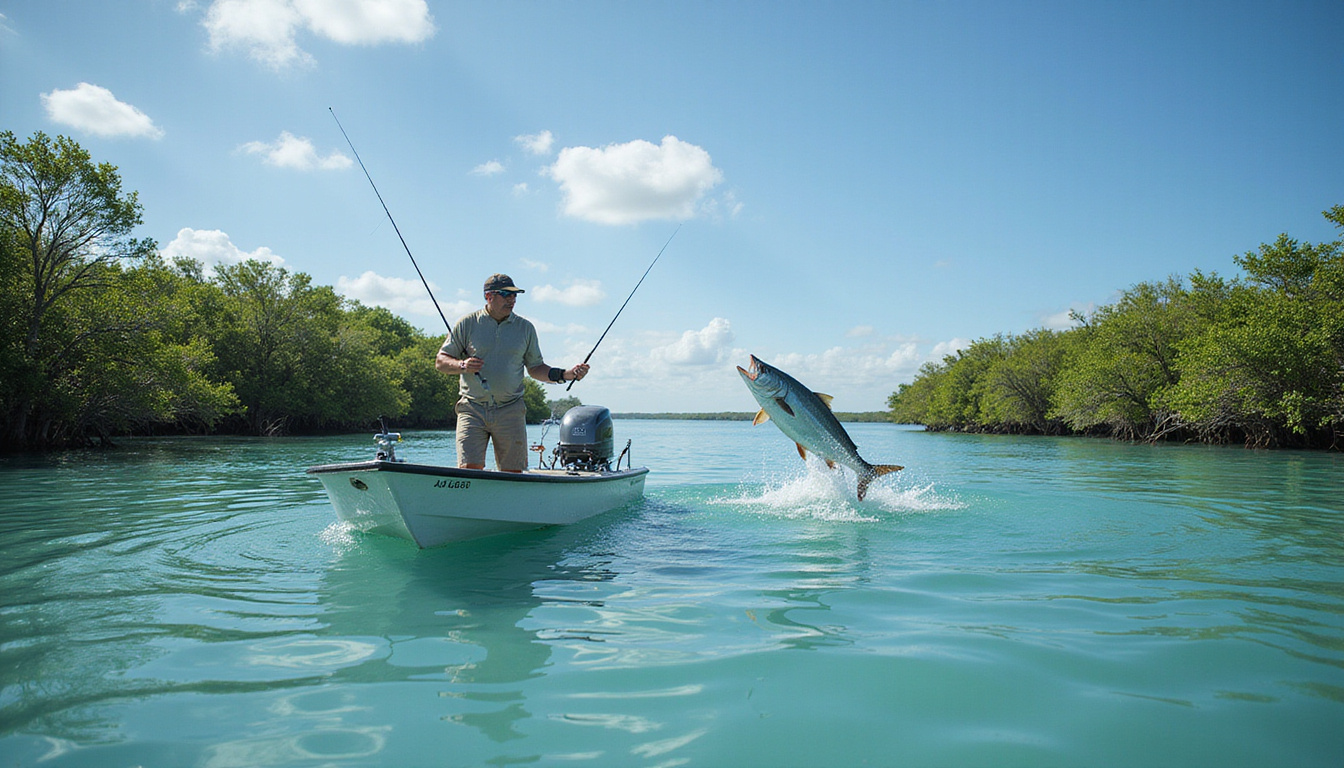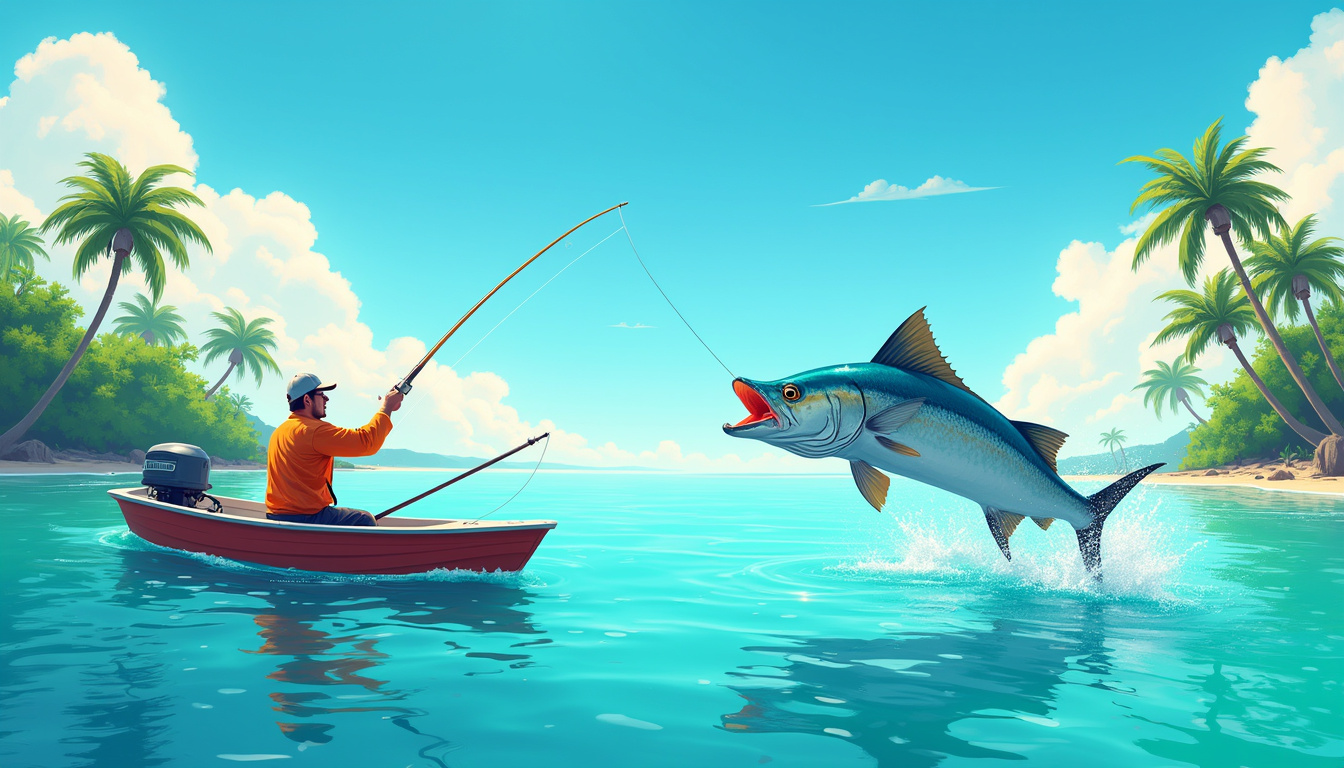
Essential Tarpon Fishing Tips for Beginners in Florida: Your Ultimate Guide to Success
On April 30, 2025 by Andy FordIf you’re planning to explore the thrilling world of tarpon fishing in Florida, you’re in for an exhilarating experience.
The Sunshine State is renowned for its abundant tarpon population, attracting anglers from all over the globe.
This article will provide essential tarpon fishing tips for beginners in Florida, helping you to understand these magnificent fish, select the right gear, master effective techniques, and navigate crucial safety regulations.
Whether you’re casting from a boat or the shore, our comprehensive guide will equip you with the knowledge you need to make your tarpon fishing adventure a success!
Mastering Saltwater Fishing: A Complete Guide to Choosing the Right Fishing Line
 Mastering Saltwater Fishing: A Complete Guide to Choosing the Right Fishing Line
Mastering Saltwater Fishing: A Complete Guide to Choosing the Right Fishing Line

Best Techniques for Catching Tarpon
When it comes to tarpon fishing tips for beginners in Florida, preparation is key to enjoying a successful outing.
First, familiarize yourself with the best times to fish for tarpon, which typically peaks during the warmer months from April to September.
Understanding the seasonal patterns of these magnificent fish sets the stage for success.
Utilize proper gear, including a sturdy rod and reel capable of handling their impressive size and strength.
Choose the right bait; live bait such as crabs, mullet, and pinfish work wonders, but artificial lures can also be effective when used with the right techniques.
Learn to spot areas where tarpon congregate, such as around bridges, passes, and along beaches, especially during their migratory periods.
Don’t forget to practice your casting accuracy and patience, as these elements are crucial in enticing the elusive tarpon.
Lastly, consider hiring a local guide who specializes in tarpon fishing – their expertise can provide an invaluable shortcut to mastering this thrilling sport.
Armed with these tarpon fishing tips for beginners in Florida, you’re on your way to a rewarding fishing experience.
Safety Tips and Regulations for Tarpon Fishing in Florida
When embarking on the exciting adventure of tarpon fishing in Florida, it’s crucial to prioritize safety while adhering to regulations designed to protect both anglers and the environment.
Here are some essential tarpon fishing tips for beginners in Florida.
First, always wear a life jacket and ensure your fishing equipment is in good working order to navigate Florida’s waters safely.
Familiarize yourself with local fishing regulations, including seasonal restrictions and size limits to ensure that you’re fishing sustainably.
Carry a valid Florida fishing license, which is required for both residents and visitors.
Additionally, pay attention to weather conditions and tidal changes, as they can significantly impact your fishing experience.
Being aware of your surroundings, including the presence of wildlife and other boats, is also vital.
By following these guidelines and safety tips, you’ll not only enhance your chances of having a successful outing but also enjoy the stunning natural beauty that Florida’s waterways offer while respecting its delicate ecosystem.
Frequently Asked Questions
What is the best time of year to go tarpon fishing in Florida?
The best time for tarpon fishing in Florida is usually late spring through early summer, particularly from April to July, when tarpon migrate along the coastline.
What essential gear do I need for tarpon fishing?
You will need a heavy-duty rod and reel, strong braided line, various types of hooks, live bait or lures such as crabs or minnows, and a landing net.
What are some effective techniques for catching tarpon?
Popular techniques include using live bait such as crabs or mullet, casting from a boat or pier, and practicing catch-and-release methods to ensure sustainability.
Are there any safety tips to consider while tarpon fishing in Florida?
Always wear a life jacket, stay hydrated, apply sunscreen, and be mindful of local weather conditions.
Ensure you have a valid fishing license and follow local regulations.
Where are the best locations to fish for tarpon in Florida?
Some of the best locations include the Florida Keys, Boca Grande Pass, Tampa Bay, and the waters around Fort Myers.
100% Free Ai trading Bot Click here for yours!
Archives
Calendar
| S | M | T | W | T | F | S |
|---|---|---|---|---|---|---|
| 1 | 2 | |||||
| 3 | 4 | 5 | 6 | 7 | 8 | 9 |
| 10 | 11 | 12 | 13 | 14 | 15 | 16 |
| 17 | 18 | 19 | 20 | 21 | 22 | 23 |
| 24 | 25 | 26 | 27 | 28 | 29 | 30 |
| 31 | ||||||
